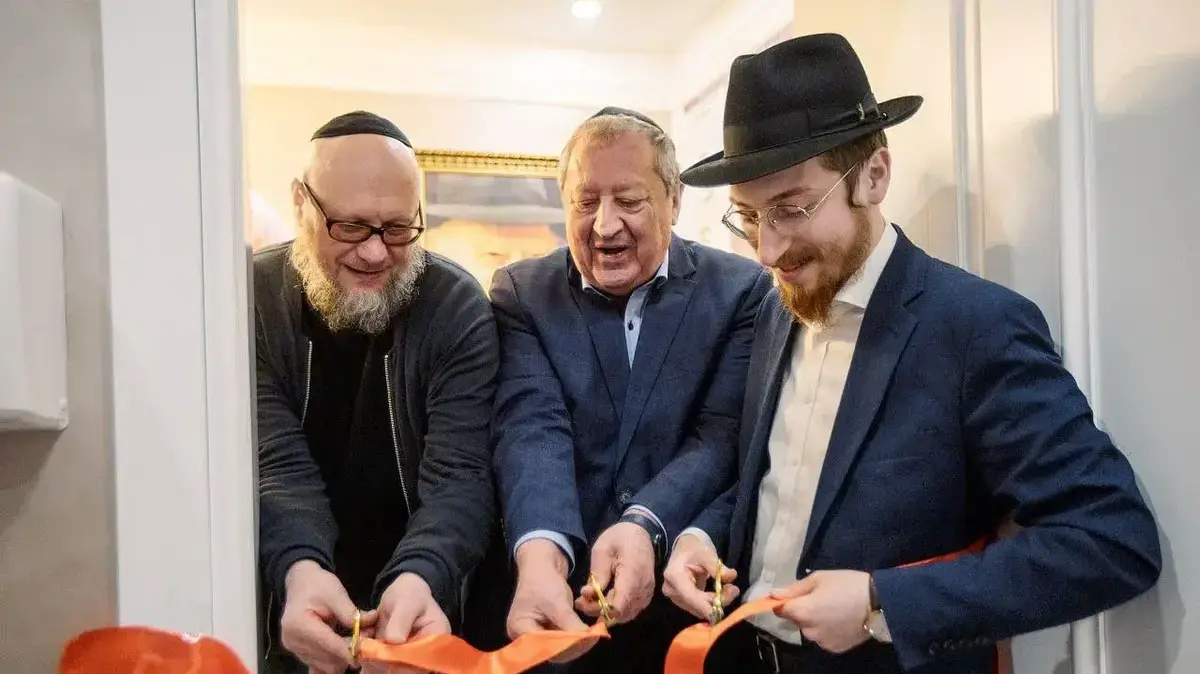Kaliningrad is a piece of Russia that history has left in the middle of the European Union.
With the Russian invasion in Ukraine, this over-armed territory of 200 km² would sooner or later become a powder keg.
And it was Lithuania that lit the fuse: since June 17, trains from Russia no longer have the right to transport coal, metals (iron, steel) and building materials to this Russian enclave, since the railways pass through Lithuania, therefore the EU.
On July 1, the ban will be extended to cement and alcohol, then to petroleum.
Read alsoUkraine: special trains, transport on the Danube … the plans to bring out the cereals
For Lithuania, it is a simple application of European sanctions.
Russia sees it rather as a “hostile act”, to which it will provide in the coming days a “response not exclusively diplomatic but of a practical nature”, according to the spokesperson for the Ministry of Foreign Affairs.
Denouncing a "blockade", the governor of Kaliningrad, Anton Alikhanov estimated that 40 to 50% of the enclave's supplies via Lithuania could be affected.
The situation to follow closely is that in the Russian enclave of Kaliningrad.
Three days ago, Lithuania decided to block access to certain goods (coal, building materials, metals) destined for the enclave.
Residents stock up.
https://t.co/8s0mvo2Fqb
— Loup Bureau (@LoupBureau) June 20, 2022
“This decision is truly unprecedented.
It's a violation of everything.
We understand that this is linked to the EU's decision to extend sanctions to transit.
We consider it illegal,” reacted Kremlin spokesman Dmitry Peskov.
There is indeed an agreement concluded twenty years ago between Russia and the EU: this transit was one of the conditions imposed on Lithuania when it joined.
An ultra-militarized enclave
The head of European diplomacy, Josep Borrell, tried to calm things down by stressing that transit by land has not been stopped, and that the movement of other goods and passengers has not been affected.
But Moscow does not take off.
The second most powerful man in the country, Nikolai Patrushev, who whispers in Putin's ear, went there.
The EU ambassador in Moscow was summoned and a member of the Duma proposed to question the independence of Lithuania.
"Excuse the expression, but it's hot!"
loose Caroline Grimaud-Potter, geopolitical scientist specializing in Russia.
Lithuania has taken a serious, dangerous decision, hiding behind the sanctions and Europe can no longer go back, it would contradict itself.
»
By meddling in the affairs of Kaliningrad, Vilnius touches a sensitive chord.
The enclave of one million inhabitants represents a strategic military stronghold for the Kremlin: its Baltic Sea military fleet is based there, as it is one of the few ice-free ports in Russia.
Iskander anti-ballistic missiles, capable of carrying nuclear warheads, are deployed there.
The Suwalki corridor, NATO's Achilles' heel
Should sanctions automatically be applied to the Klaningrad enclave?
In May, the Lithuanian Deputy Foreign Minister, Mantas Adomenas, nevertheless declared to Le Monde that this transit was “protected by international treaties, and excluded from all sanctions”.
“The purely technocratic aspect prevailed, but the geostrategic impact on the Russians was not sufficiently taken into account, deplores political scientist Patrick Martin-Genier, specialist in European issues.
This useless measure could cause an incident very quickly.
»
Initially, “we can imagine economic reprisals, with a blocking of Lithuanian imports”, supposes Caroline Grimaud-Potter.
Russia could also seize the Suwalki corridor, NATO's Achilles' heel.
This small 65 km long border strip between Poland and Lithuania connects Kaliningrad to pro-Putin Belarus, and therefore to Russia.
“If Russia blocks it, it would isolate the Baltic countries from NATO, because this corridor represents their only land connection,” she continues.
The opening of tension on this front is particularly "risky", underlines Patrick Martin-Genier, at a time when NATO is strengthening its presence in neighboring Poland.
"We don't need to add more.
»









